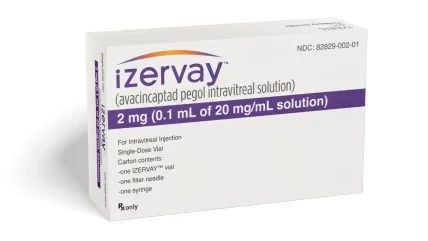
Astellas Pharma announced that the US Food and Drug Administration (FDA) has removed the dosing limitation for Izervay (avacincaptad pegol intravitreal solution), allowing longer-term use for the treatment of geographic atrophy (GA) secondary to age-related macular degeneration (AMD).
Izervay, a prescription eye injection, was previously approved for GA secondary to AMD in August 2023. With this update, the treatment can now be administered without a restriction on the duration of dosing, offering greater flexibility for physicians and patients in managing GA.
The latest approval follows Astellas’ resubmission of the supplemental new drug application (sNDA) for Izervay in December 2024.
This followed a meeting with the FDA to address feedback from the Complete Response Letter (CRL) issued in November 2024.
The FDA approval was based on positive results from the GATHER2 Phase 3 clinical trial, which assessed the efficacy and safety of the treatment through year two.
The trial assessed avacincaptad pegol in 448 enrolled patients with GA secondary to AMD.
At 12 months, the therapy met its primary objective.
In two-year results, GATHER2 showed that avacincaptad pegol reduced GA lesion growth in patients with GA secondary to AMD, compared to sham.
Treatment benefits were seen as early as six months and continued to increase, more than doubling by year two.
Izervay was well tolerated, with only one case each of non-serious intraocular inflammation and culture-positive endophthalmitis.
Astellas Pharma biopharma and ophthalmology development senior vice president Marci English said: “We are pleased with the FDA’s decision to extend the use of Izervay for longer-term administration, further solidifying Izervay’s status as a trusted choice for thousands of GA patients since its launch in 2023.
“To date, Izervay remains the only FDA-approved treatment to demonstrate a statistically significant slowing of GA across two pivotal studies.”
The Japanese pharmaceutical company plans to continue evaluating avacincaptad pegol in an open-label extension study.






